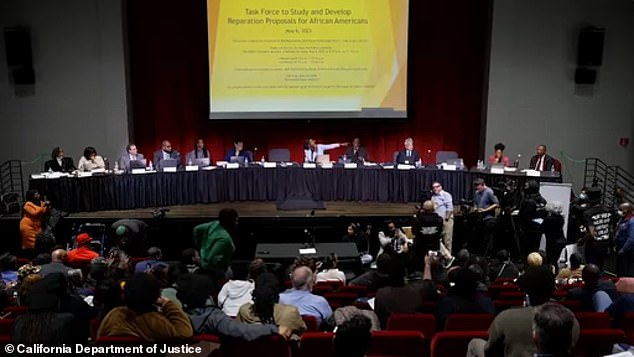
The recent approval of recommendations by California’s reparations task force marks a significant step in addressing historical injustices inflicted upon black residents of the state. The proposed compensation package, which could amount to $1.2 million per eligible individual, aims to acknowledge and rectify the enduring impacts of slavery and systemic discrimination.
Formed in the wake of nationwide protests over the death of George Floyd in 2020, California’s reparations task force represents a groundbreaking initiative in the United States. Its mission to confront the legacies of racism and inequality reflects a growing recognition of the need for reparatory measures to address past harms and promote racial justice.
The task force’s recommendations, based on extensive research and consultation with experts, outline a framework for compensating individuals who have suffered from a range of discriminatory practices and policies. From over-policing and mass incarceration to discriminatory lending and zoning, the proposed reparations aim to redress the economic, social, and health disparities faced by black Californians.
However, the estimated costs of reparations and the specific compensation amounts have sparked debate and criticism among residents and activists. Some argue that the proposed $1.2 million per person is insufficient to address the magnitude of historical injustices endured by black communities. Calls for higher direct cash payments and a more ambitious reparations plan underscore the deep-seated frustration and skepticism surrounding the process.
In response to concerns raised during the task force meeting, panel members emphasized that the proposed figures are just estimates and that further research and deliberation would be needed to finalize the specifics of the compensation program. The task force’s recommendation for direct payments to eligible individuals, along with the creation of a state agency to process claims, reflects a commitment to expediting the reparations process and ensuring timely redress for those affected.
The eligibility criteria, which include descendants of enslaved African Americans and free black individuals living in the United States before the end of the 19th century, aim to encompass a broad range of individuals impacted by historical injustices. By prioritizing elderly black residents for compensation, the task force acknowledges the urgency of addressing the needs of those who have experienced a lifetime of systemic discrimination.
Moving forward, the task force’s recommendations will be submitted to state lawmakers for consideration before July 1. If legislation is passed to enact the proposed reparations program, it will represent a significant milestone in California’s efforts to reckon with its past and advance racial equity and reconciliation.
Despite the challenges ahead, the reparations task force remains committed to its mission of acknowledging, apologizing for, and redressing the harms inflicted upon black Californians throughout history. As the state continues to confront its legacy of racism and inequality, the pursuit of reparatory justice serves as a critical step towards building a more equitable and inclusive society for all.
RELATED ARTICLES
- Mark Zuckerberg is Stockpiling on Gold Reserves, Preparing to Move to Bunker
- Mayo Clinic Says Racism Causes African Americans to Have Heart Attacks
- Doctors Sue Governor Gavin Newsom of California Over COVID 'Misinformation' Law
- Bulgaria to impose 'health passport' restrictions for Leisure Activities
- LA Health Officials Say Maskless Emmy's Did NOT Violate Rules Because 'Hollywood Elite Are Protected & Special'











